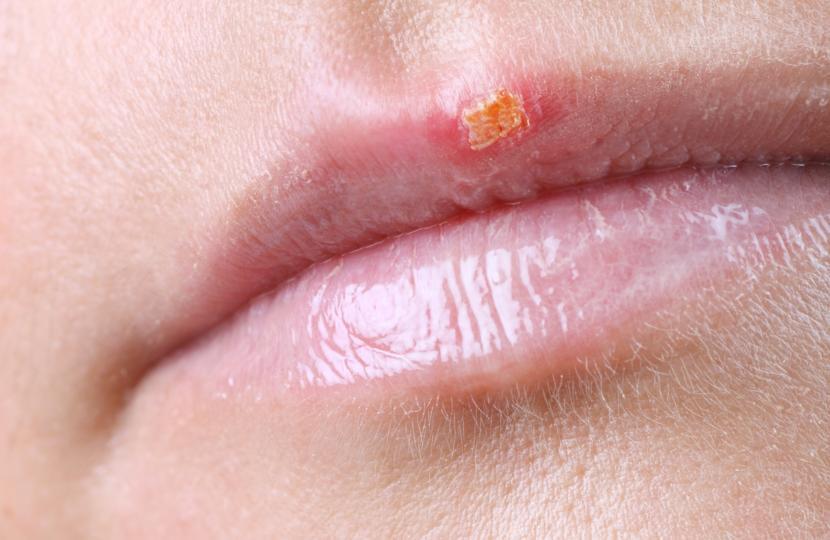How Can I Prevent Cold Sores?

Cold sores are groups of small fluid-filled blisters that form on and around the lips. These blisters, also known as fever blisters, are sore and reddish in color. As the blister breaks open, the fluid oozes out and forms a crust. In most cases, cold sores resolve within few weeks.
Fever blisters are commonly caused by herpes simplex virus (HSV) infection. HSV is of two types – HSV-1 and HSV-2, and both types can cause blisters around the mouth. These viruses gain access into the body through small cuts and wounds in and around the mouth. It spreads through close contact with an infected person like touching the person or infected fluid from the blister, sharing utensils and razors, and kissing. The blisters may spread to other parts of the body as well. Although the condition is mostly contagious when the fluid oozes out of the open blister, it may also spread even during other stages of the disease.
In most cases, the virus may remain inactive after an infection and is triggered later by several factors, including fever, stress, fatigue, and exposure to the sun. The risk of developing cold sores increases in people with weak immune systems. The risk is greater with other conditions, like eczema, AIDS, burns, and chemotherapy. Preventing the spread of the virus is the best way to prevent this condition.
Some of the simple tips to avoid the infection include:
- Avoid close contact with infected people
- Avoid kissing an infected person
- Do not share utensils, towels, and razors
If you have already got an infection, you can prevent further outbreaks by:
- Avoiding triggers of cold sores
- Applying sunscreen and lip balm as exposure to sun may activate the dormant virus
- Avoid sharing personal things like razors, towels, and utensils
- Do not touch the sore with hands as it leads to further spread
- Wash your hands often to keep it clean and virus-free
Over-the-counter medications, like docosanol, help to prevent an outbreak. Drying agents like alcohol are used for quick healing. Symptoms can also be eased by applying cold water on the blisters.
Fever blisters generally disappear within one or two weeks. Antiviral drugs are the most commonly prescribed medication for controlling cold sores. Antivirals may be in the form of pills, capsules or injections. Alternative medicines like lemon balm and lycine are normally used to alleviate cold sores. Techniques like deep breathing exercises and meditation will be helpful in reducing stress, one of the most important causes of the disease.










